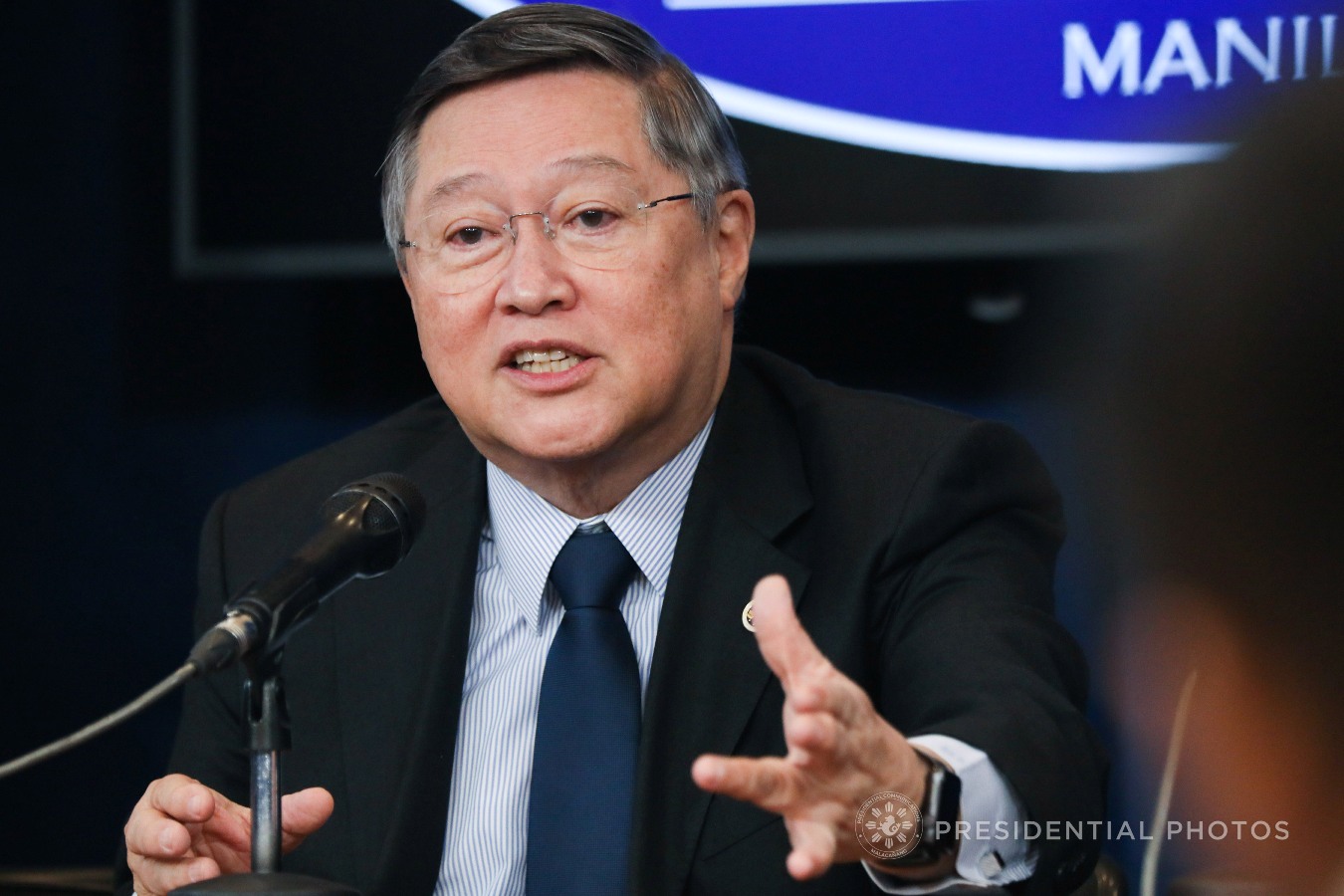
FILE: Finance Secretary Carlos Dominguez III New Executive Building in Malacañang on January 8, 2018. TOTO LOZANO/Presidential Photo
MANILA – The government has come up to date with about PHP1.17 trillion worth of fiscal and monetary measures to help Filipinos combat the effect of the coronavirus disease (Covid-19) pandemic.
This was reiterated by Finance Secretary Carlos Dominguez III during the televised briefing of President Rodrigo R. Duterte along with several Cabinet officials early Thursday.
“We have a long breakdown of how we have this program but mostly, it was to provide subsidies for the low-income families and workers of the small and medium enterprises,” he said, citing that these fiscal and monetary measures account for about 5 to 6 percent of domestic output.
These measures include the PHP205 billion realigned so far from this year’s national budget as mandated by the Bayanihan to Heal as One Act, and the PHP300 billion used by the Bangko Sentral ng Pilipinas (BSP) to purchase government securities that will be repurchased within six months, which will boost the national government’s funding capacity;
Also, the 200-basis point reduction in universal and commercial banks (U/KBs) reserve requirement ratio (RRR) that is seen to release about PHP180 billion worth of liquidity into the economy; and the total of 75 basis points cut in the central bank’s key policy rates that should be reflected to lower interest rates by banks and other financial institutions.
Funds gathered from the realigned budget were allocated for, among others, the PHP5,000 to PHP8,000 cash aid for poor households.
Dominguez said they have also spent about PHP600 million for healthcare and Covid-19 items.
Aside from ensuring that there is a fund for Covid-19 response, Dominguez said they are also “working on our recovery or our bounce back program.”
He said a survey is now being conducted, which has so far attracted 44,000 respondents, to check on what sectors incurred huge damage from the pandemic.
“We are also coming up with a program to continuously borrow more money to support the Philippine economy and our fight against this Covid-19,” he said.
Dominguez further said they have so far talked with people from the Asian Development Bank (ADB) and the World Bank (WB) about the USD5.6-billion loan.
He said economic managers are also considering tapping commercial fund sources if the loans from multilateral lenders will not be enough.
He also expressed confidence that if ever they will decide to push through with this, the interest rates will be low because of the improvement of the country’s credit rating, with the highest to date at BBB+ investment grade.
“So we are confident that we have the financial capability to bridge this problem that the Covid-19 has brought us,” he added.
Dominguez further said that while the government has the funds to address the current situation, the available funds are not infinite thus, the need to “spend it correctly, and not on wasteful expenditures.”
“So the program is to spend: first, to help the poorest families; and then to help the small and medium enterprises; and then to provide support for the companies that are supported by their banks,” he added

